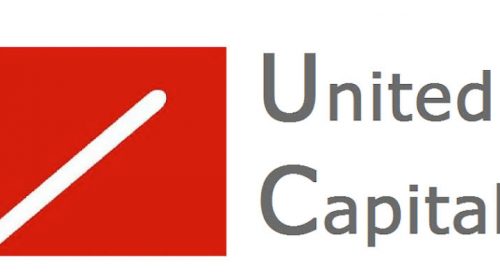FMDQ partners Thomson Reuters to Strengthen Nigerian Financial Market
Thomson Reuters, the world’s leading source of intelligent information for businesses and professionals, and Nigeria’s foremost debt capital and OTC Exchange, FMDQ OTC Securities Exchangehave announced a strategic collaboration to deepen capacity to help drive liquidity and enhance the visibility of the Nigerian financial market to domestic and international investors.
Making the announcement at a Signing Ceremony on 27July 2018, the two organisations committed to combine forces to help drive Nigeria’s global competitiveness and visibility to global investors.
Mr. Bola Onadele. Koko, Managing Director/CEO, FMDQ OTC Securities Exchange said: “We are pleased to be formalising our partnership with Thomson Reuters as we cooperate towards the development of the Nigerian financial markets. Having sought a like-minded company with similar values and drive to FMDQ, I believe that this partnership will see both parties leveraging on the knowledge, experience, expertise and uniqueness of one another, in a bid to deepen the markets’ capacity and enhance its visibility to domestic and international investors, he added.”
Sneha Shah, Managing Director for Africa at Thomson Reuters said, “Thomson Reuters has been investing in Nigeria and Africa for over 100 years, and has worked closely with FMDQ and the Central Bank of Nigeria to support the development of the market over the years. FMDQ has been a key driver of many of the financial market innovations coming from Nigeria and these are going to be important for other developing markets as well.”
“Nigeria is an economic giant of West Africa and the continent and it is vital that global companies who want to reach the fastest growing markets in the world have access to the opportunities here. We are excited about the opportunity this partnership brings to help drive sustainable long-term investment into Nigeria.”
Part of the action plan includes conducting joint financial markets events that promote transparency and liquidity as well as skills training to educate the market.
As part of this partnership, Thomson Reuters and FMDQ will work closely across their continental and global offices – including providing FMDQ access to Thomson Reuters’ Innovation Lab in Cape Town, South Africa – to drive innovation in FX, Fixed Income, Risk Management and the Financial Market.
CBN Approves $340m, CNY69m For Agric, Raw Materials
From NGOZI Onyeakusi, Lagos
The Central Bank of Nigeria (CBN), on Friday, provided 340 million dollars and 69 million Chinese Yuan (CNY) to customers seeking foriegn exchange in the agricultural and raw material sector.
The acting Director, Corporate Communications, Mr Isaac Okorafor, said the sales in the Chinese Yuan was done through a combination of spot and 15-day tenor.
He said the Chinese Yuan was made available only to customers with Renminbi denominated Letters of Credit for agriculture as well as raw materials and machinery.
Okorafor said the availability of Renminbi would eventually ease pressure on the Nigerian foreign exchange market.
He attributed the current stability in the foreign exchange market to the continued intervention of the CBN as well as the sustained increase in crude oil prices in the international market.
The apex bank remained committed to ensuring all sectors continued to enjoy access to foreign exchange required for business, whether in US dollars or Chinese Yuan, the CBN spokesman said in a statement.
It will be recalled that the CBN on July 20, announced the commencement of its intervention in the sale of foreign exchange in CNY.
The sales marked the commencement of the Bilateral Currency Swap Agreement (BCSA) signed with the People’s Bank of China (PBoC) on April 27, 2018.
The statement announcing the flag-off of the sale had explained that there would be no predetermined spread on the sale of Foriegn Exchange Forwards by authorised dealers to end-users under the special sales window.
Also, authorised Dealers would be allowed to earn not more than 50 kobo per CNY on a customers’ bids.
Meanwhile, a dollar exchanged for N360 at the Bureau de Change (BDC) segment of the foreign exchange market, while one CNY exchanged for N53.35.
Union Bank grows PBT by 23%
FROM NGOZI ONYEAKUSI, LAGOS
Union Bank, one of Nigeria’s longest standing and most respected financial institutions, has announced its unaudited financial statements for the period ended June 30 2018.
The lender recorded a Profit before tax growth of 23% to ₦11.7bn against ₦9.5bn recorded in H1 of 2017 while Gross earnings increase by 16% to ₦83.3bn from ₦72.1bn recorded in H1 2017, the growth according to the lender was driven by a 10% increase in interest income and 37% increase in non-interest income .
Interest income equally soared by 10% to ₦62.2bn from ₦56.6bn recorded in H1 of 2017 while Net interest income before impairment went up by 14% to ₦34.4bn from ₦30.1bn recorded in H1 2017, this was driven by an improvement in net interest margins from 7.9% to 8.2% on the back of lower cost of funds.
Similarly, Non-interest income up by 37% to ₦21.1bn from ₦15.4bn posted in H1 2017 driven by enhanced treasury trading income, recoveries and 311% growth in alternate channel revenues while Net operating income as well increase by 22% to ₦50.9bn from ₦41.9bn posted in H1 2017.
Commenting on the results, Emeka Emuwa, CEO said:
“In the first half of the year, we have continued to see positive results from our efficiency and productivity drive. Across all our business lines, we witnessed strong underlying performance, translating into improved earnings. We continue to focus on the recovery of non-performing loans. With the resolution in Q2 2018 of the large real estate exposure which was impaired in December 2017, the Group NPL ratio is down to 10.8% from 14.9% at 31 March 2018 and 19.8% at 31 December 2017. The Group continues to demonstrate its ability to deliver strong results notwithstanding a competitive and challenging operating environment.
Gross earnings rose by 16% to N83.3 billion from N72 billion in H1 2017, underpinned by improved Net Interest Margins (NIM), robust treasury trading income, recoveries and alternate channel revenues, on the back of increased customer adoption. Our Profit Before Tax (PBT) grew by 23% compared to H1 in 2017.






Leave a Reply